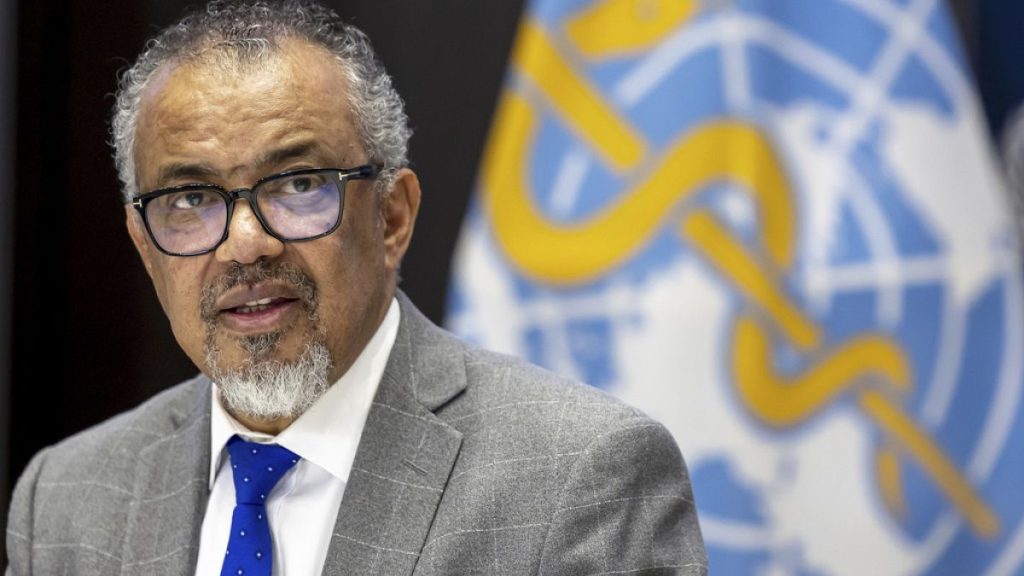The World Health Organization (WHO) is grappling with a significant financial crisis following the US withdrawal from the organization, a decision enacted by former President Donald Trump. This withdrawal translates to a loss of approximately $988 million, representing 14% of the WHO’s total budget for 2024-2025, making the US the single largest contributor. The financial repercussions are far-reaching, impacting numerous critical health programs globally, particularly those addressing health emergencies. The WHO Director-General, Tedros Adhanom Ghebreyesus, has appealed to world leaders to urge the US to reconsider its withdrawal, emphasizing the detrimental consequences for global health initiatives.
The reliance of WHO programs on US funding is substantial, with the health emergencies program being particularly vulnerable. The “readiness functions” within the WHO’s Europe office, for instance, depend on US contributions for over 80% of their funding. Moreover, a significant portion of the agency’s large-scale emergency operations, covering up to 40%, is funded by the US. This includes vital responses to crises in regions like the Middle East, Ukraine, and Sudan. The withdrawal also threatens to severely curtail progress in combating diseases like polio, HIV, and tuberculosis, with programs facing significant funding shortfalls. The impact on tuberculosis work is particularly acute, with the US covering 95% of such efforts in Europe and over 60% in Africa, the Western Pacific, and the WHO headquarters in Geneva.
The financial strain on the WHO is further compounded by the US government’s refusal to settle outstanding contributions for 2024, pushing the agency into a deficit. Attempts by the WHO to recoup past expenses have been largely unsuccessful, as the US has declined to release these funds. The situation has been exacerbated by the immediate cessation of collaboration between the US Centers for Disease Control and Prevention (CDC) and the WHO, further hindering the organization’s capacity to address ongoing health crises. These ongoing crises include outbreaks of Marburg virus, Ebola, and mpox in various countries, demanding immediate and sustained attention and resources.
The rationale behind the US withdrawal, as stated by former President Trump, centered on accusations of WHO mismanagement of the COVID-19 pandemic, a failure to implement necessary reforms, and disproportionately high financial contributions from the US. However, the WHO Director-General has countered these claims, highlighting the organization’s early warnings regarding the pandemic’s potential dangers and the implementation of numerous reforms since the outbreak began. He underscored the importance of the US rejoining the WHO, emphasizing the vital role it plays in global health security and urging member countries to advocate for its return.
Internal discussions within the WHO reveal the gravity of the financial crisis and the difficult choices ahead. A proposed option includes drastic budget cuts across all major departments and offices, potentially reducing their funding by half by the end of the year. Member countries have expressed concern and have inquired about specific strategies to mitigate the loss of US funding and the potential impact on various health programs. Germany, in particular, has voiced alarm, comparing the situation to a “house on fire” that requires immediate attention.
While the US withdrawal undoubtedly presents a significant challenge, some experts view it as a potential catalyst for reshaping global public health governance. They argue that the current WHO funding model, heavily reliant on contributions from a limited number of wealthy nations, is unsustainable and requires a more equitable and diversified approach. The departure of the US, despite the immediate crisis it creates, could potentially spur a necessary restructuring of global health financing and leadership. It is noted that despite its significant contribution to the WHO, the US allocates less than 1% of its health budget to the organization, prompting calls for more substantial and consistent funding from wealthy countries for global health initiatives.














